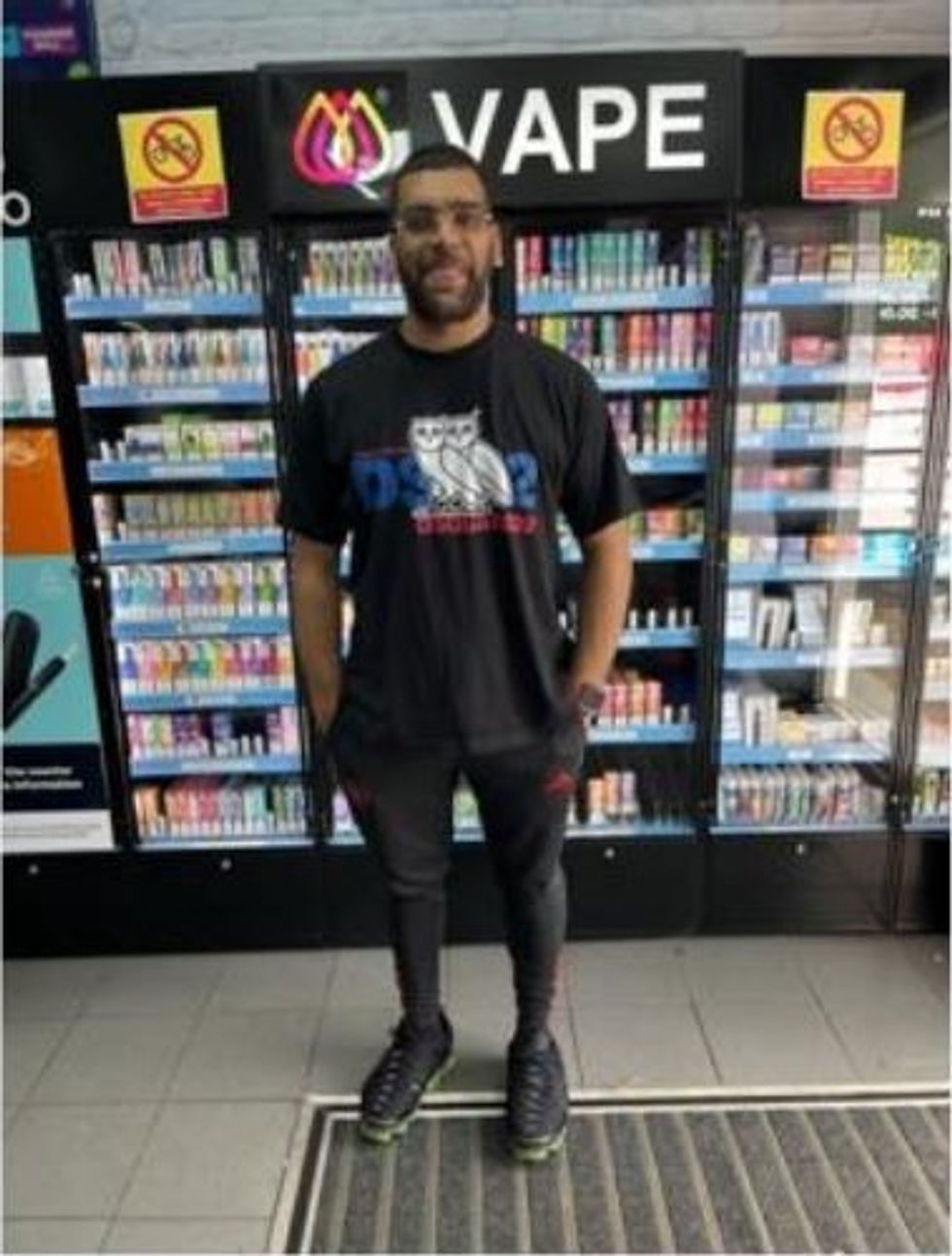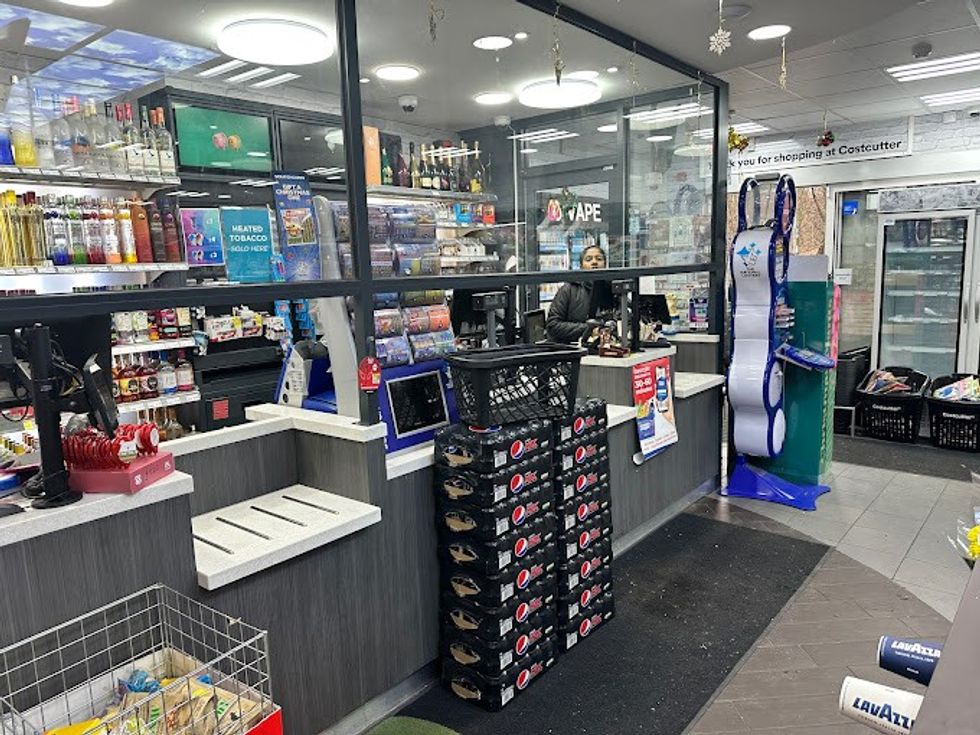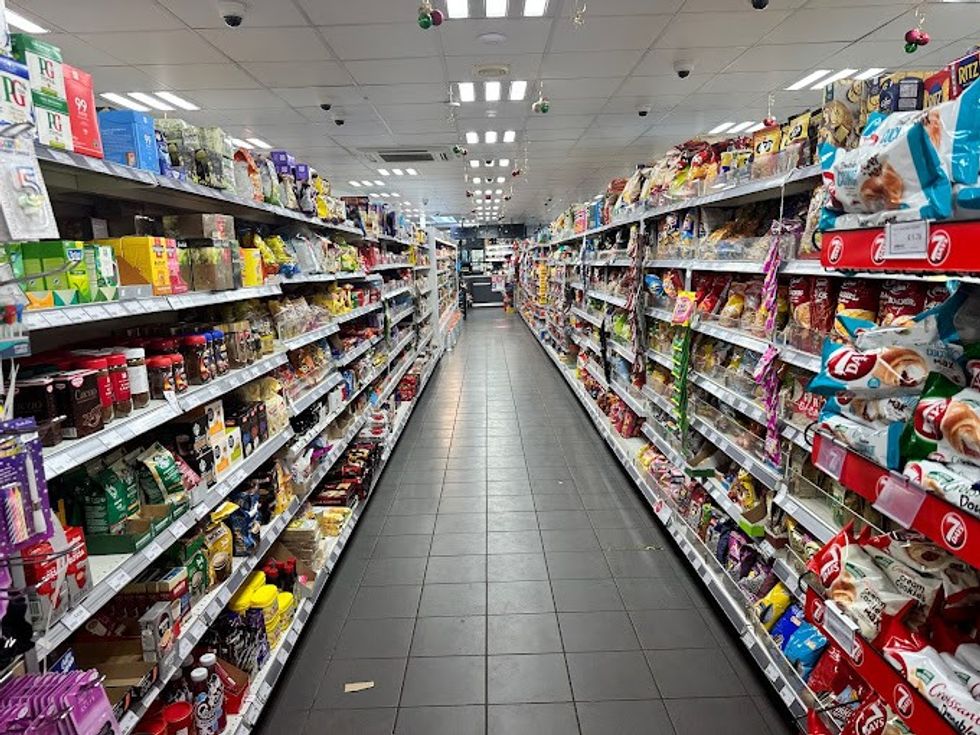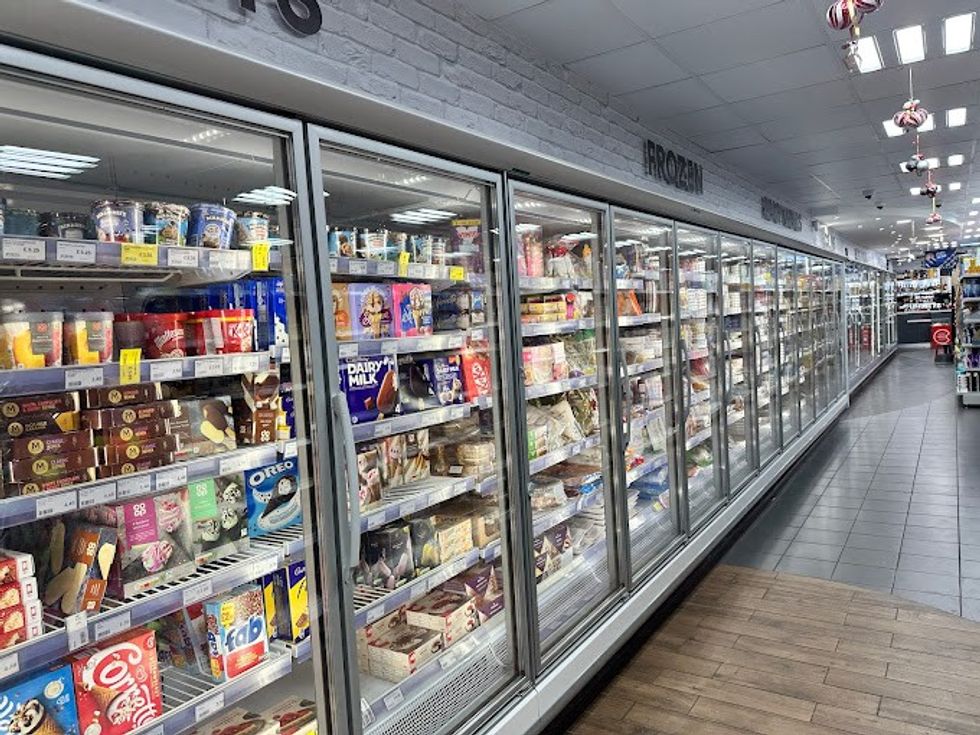Nikesh Patel proved that his Northampton Costcutter is a cutting-edge vape destination when he won the Asian Trader Vape Convenience Retailer of the Year Award last November
Vaping products were the fastest growing category in UK grocery for the second year running in 2023, and Nikesh Patel, who runs the Costcutter store in Lumbertubs, Northampton, is a witness to the rapid rise of vaping over the past decade.
His success in adapting the category to meet the changing needs of his customers won him the Vape Convenience Retailer of the Year trophy at the Asian Trader Awards 2023.
In fact, he is a pioneer in the sale of vaping products in the convenience channel, having started selling them way back in 2011!
“I've got a friend who had a vape shop in Shoreditch, and he said, come down, have a look, maybe you'd like to stock some of this stuff in your shop,” Nikesh recalls.
“So we went down, had a look and it was really good. He showed us how everything worked, like how to put it together, how to fill it up. The information is very useful for the customers when we sell it on. So we tried to do a bit of research into how it all works from my friend. And then we purchased a good little range from him. And it did well.”
The vape market was just taking off in the UK at the time, and Nikesh has since ensured to stay ahead of the vaping curve, from big tanks to the disposables and now to the refillable pods.
He also caught the disposable vape trend early, again from a friend, who has been prolific smoker.
“It was just before Covid. He was smoking on the Geek Bars, and I asked him, what is this? He used to smoke one cigarette after another. One night, when I'm having dinner, he was smoking this Geek Bar, and I was asking him about it. He told me, ‘Nikki you try them, you will one million per cent sell them, because they're starting to take off’.”
It was not easy to get hold of the product at first, and he was wary of buying from van sellers. Then, one of his suppliers started stocking them, and they began stocking a small range, with Geek Bars, followed by Elfbars.
“We had a little, literally the tiniest little stand you can think of. And then obviously, what happened was the other companies started coming through with their vapes, and the flavours started to increase in variety. And we had nowhere to put all of this stuff at all.”
Refitting vape section
They were thinking about a refit of the store at the time, and he credits his suppliers and symbol group for transforming the vape section into what it is today.
“I was kind of happy with the little unit that we had on the till counter. But Costcutter said ‘Look, we will do a little refit on the front of the shop, new front area, basically’. We redesigned the whole behind-the-counter, and on the side of the counter. And what we did was, we stuck in these vape units.”
They bought the vape units themselves, but Nikesh wasn’t happy with the wooden units with glass doors. Then, the Philip Morris representative suggested Aquavape to him.
“She said, ‘Oh, do you know what? We've just partnered with a company called Aquavape. They would put in the units for free and they’ll stock it for free’. I thought, that sounds interesting, and when I went on their website, they had every single variety you could think of. It was easy ordering. It was just simple and really easy to use,” he says.
Nikesh is full of praise for Aquavape’s strategy of recognising the “in thing” in the market and pushing it, and also removing something if it is no longer in demand.
“It was doing half the job for me really. All I have to do is order, rather than worrying about this isn't selling and that's really fast and all that stuff. So I was quite happy with that,” he says.
They ordered four units and installed a two-metre vape section. And Nikesh just kept on stocking it. “Every week I'd make an order. I never let it run down, ever. Whatever you want, it was always, always there. And that really helped, because that pushed our sales to about £5,000-£6000 a week, just in vape.”
Pushing innovation
The category is set to face regulatory headwinds, with the recently introduced Tobacco and Vapes Bill proposing new powers to change how vapes are displayed in shops and restrict vape flavours and packaging, along with the ban on the sale and supply of disposable vapes, set to take effect from April 2025, (proposed under separate environmental legislation).
But Nikesh feels innovative new products will keep the momentum going in the category. They have been pushing Elfa Pod, which uses pre-filled e-liquid pods, for some time, and with several brands introducing such products, he speculates they are good candidates to replace disposables.
“Aquavape has been really great at doing this. They slowly introduced Elfa Pod mid last year. And we've been obviously pushing customer, saying, ‘Try this, it's reusable, you don't have to keep buying a new device. You can buy five, six different flavors. And you can just swap out the top, the little prefilled pods’,” he explains.
“We saw through their version one, and now we're on version two. But yeah, SKE has got theirs, IVG has got theirs. They've all got theirs now. And I know that eventually, they will take over the disposables.”
Last summer, when the pods were introduced, Nikesh extended his vape unit by another metre, and a whole unit is now dedicated for the prefilled pods, which they are slowly attracting everyone into.
He says IVG 2400 four-in-one is doing “amazingly well” for him, and he has been placing orders every week! IQOS, the heated tobacco brand from Philip Morris is another product that’s been selling a lot for Nikesh.
“Since they launched the new devices, Illuma, they've been doing them at ridiculous prices, £19 for a device, and then you get two packets for free, which is worth £12. So essentially, you're only paying £7 for the device,” he says.
“The reason they're doing that is because obviously, if everyone's got a device in their hand, then they need to rebuy these little sticks to go in there. So for them, it's a no-brainer.”
He thinks heated tobacco and even pre-filled pods will attract more regulations: “It's just a matter of when,” he says; but for retailers, the high margins the category offers and the volume of sales are irresistible.
“With Aquavape’s help, I've been able to just basically follow what they suggest, and whatever they suggest seems to be correct at the moment. So I've just been going with what they and trusting them,” he says.
Growing up in retail
Nikesh has retailing in his blood. His parents moved to Northampton, buying a store, in 1988, a year before he was born, and along with his elder siblings, brother Dipan and sister Bijal, he literally grew up in the store.
“We couldn't be left at home, obviously. So we'd be at the shop, working in boxes, just odd little bits and bobs, sweeping the floors and things like that,” Nikesh says. “As we got a little bit older, we are able to go on the tills. And that's when we started getting a little bit more involved.”
The family opened the Lumbertubs store in 1999, and the siblings took charge in around 2010-11, and they knew they could “definitely improve” on what they had.
They started with the small one, their first store, which was leased out to Co-op. A complete refit has seen sales more than doubling from £10,000 a week to £20,000-£25,000. A year later, they turned their attention to the larger store, which was taking around £30,000 a week.
“We did a complete refit in that shop as well, new fridges, new floor, new lighting, everything completely new. And it jumped up to about £50,000-£55,000 a week,” Nikesh reveals.
“And the magazine, Asian Trader, really helped,” he adds. “Just seeing what other people are doing. Most of the time, to be honest, we were either already doing it or planning to do it!”
The Covid-19 pandemic provided an opportunity to grow the business, both through expanding their customer base, as they saw an influx of customers who needed support in getting essentials, and also refitting areas of the store with a £110,000 refurbishment of several areas.
“I don't know where they were coming from. But there was just a huge influx of customers coming in. And we saw that as an opportunity to try and keep them. So we did another refit, extended the store a little bit more to the back and put in a few more extra fridges, extended the shelf, made them higher, so we can get more range into the store,” he explains.
“And we saw ourselves increase from £50,000-£55,000 a week to £80,000-£90,000 a week.”
That made them the second-best Costcutter store in the UK for weekly takings! And, Nikesh uses the top one, the Warwick University store, as a “target”.
“If they are doing £100,000 a week, I want to do £100,000 a week. So I will do as much as we possibly can,” he says.
Efficiency and range
Nikesh is always on the lookout for new technology to improve efficiency and, serving a very diverse population, he also experiments with different products from different countries to draw in customers.
Their extensive World Foods range caters well to the melting pot of nationalities who live locally, including Lithuanian, Romanian, Russian, Jamaican, Latvian, Moldovan, Ghanaian and Nigerian – and also for customers who are keen to try and experiment with different ingredients and cuisines.
“One product I can give you an example on is plantain. We have a lot of African and Caribbean customers, and a lot of them travel to the town centre to get yam, plantain and things like that. So we stock a huge Caribbean and African range. We started off with just plantain. That started drawing in the extra African and Caribbean community to come to our store to grab their fruit and veg rather than having to travel into town centre,” he explains.
Now the Patels’ extensive international range offers a whole aisle of products from around 15 countries, including 17-metres of ambient products and 4.5m of chilled products. And they built this range by continuously trialling different products. Many of their customers are not very proficient in English, but Nikesh’s store staff includes a lot of Europeans who can speak many languages, and they actively ask everyone what they would like to see in the store.
“Whatever it is, we get it in and sell it for a few weeks and if it's a good seller, we keep it,” Nikesh says. “If it's really, really slow, perhaps takes over a month to sell a case or something like that, then we might cut it and drop it for a different product.”
On the tech front, they recently implemented electronic shelf-edge labels. Another thing that they're doing is artificial intelligence (AI) cameras.
“These AI cameras, they search each section of the shelving, like a metre of shelving, it will concentrate on just that one fixture. And the moment a product is misplaced it notifies us and tells us this is wrong place, it needs to move back to here. If it's empty, it will tell us these products are empty on the shelves. They either need reordering or they need refilling from the back,” Nikesh explains.
The technology is provided by Chinese retail tech firm Hanshow, with Smethwick-based Avery Berkel implementing it in Nikesh’s store.
Proactive in crisis
Nikesh has an Aldi, a Lidl, a B&M and a Tesco right on his doorstep, and they are competing with their pricing as the cost-of-living crisis lingers on.
“To be honest, we've been quite proactive with the cost-of-living crisis. Before any of that even started affecting people, we looked at our basic stuff like milk, bread, potatoes and eggs, and at suppliers where we can get it as cheap as possible, and obviously sell it to the customers as cheap as possible, too,” he says.
They also increased their offers. “If we do 50 offers in a period, we've increased that to 100. We used to only have, say, one tea on offer, one coffee on offer, one biscuit on offer. Now we've got 2-3 teas on offer, 2-3 biscuits on offer. We've increased our offering to the customers in the hopes of them thinking, ‘Okay, there's more on offer here, it's a little bit cheaper than usual, more of the ranges on offer as well’, just to help them,” he adds.

Nikesh stresses the importance of knowing what the customers need and stocking those products.
“Once you've got their wants and needs, you can tailor your shop to your area. Because after all, it's all about that. Costcutter or Booker or whoever, they can come in and say, ‘Look, these are the core lines, you must stock all these core lines’, but not all core lines always sell,” he says.
“Your shop is not catering for the whole of the UK, you're catering for your area. So you really need to know what your customers want and need. Stock the product even if it's just one customer that says to you, ‘Can you stock this?”
Once you've got to that point, Nikesh says the sales will invariably increase, and you can then focus on making the store look nicer and cleaner.
“Because that's very, very important,” he says. “The last thing you want to do is go and buy food from somewhere where they've got spillages and dust everywhere. When you are doing a refit, it's not going to do anything for the product, but you're just making it look more appealing for the customer.”
Merchandising is another area he puts a lot of emphasis on, and he shares his experience of the refit in 2012, when they outsourced it, and the difference it made.
“Usually we merchandise the shop ourselves between me, my brother and my sister. We were really good, we've been doing it for years. But that one time, we hired a company from Scotland. They were really expensive, but when they left, the shop looked so beautiful. It was just crazy. I just loved the way they left it. I wish I should have done it. I'm sure I have got it somewhere but they left it in such a good way. And I thought that is the way it has to be,” he says.
They also move things around every now and then. “So customers have to really look for whatever they want again. So they might see something that they didn't know that we stocked,” he adds.
Nikesh says it was exciting to take on the responsibility of running the store from his parents and “bring a new vision to it, make new things happen and take it further than they ever imagined”.
“We have embraced it 100 per cent and are passionate about continuing to build on the great foundations and legacy of the business established by them. We are a family unit and love what we do,” he concludes.







